Road closure to protect migrating toads welcomed
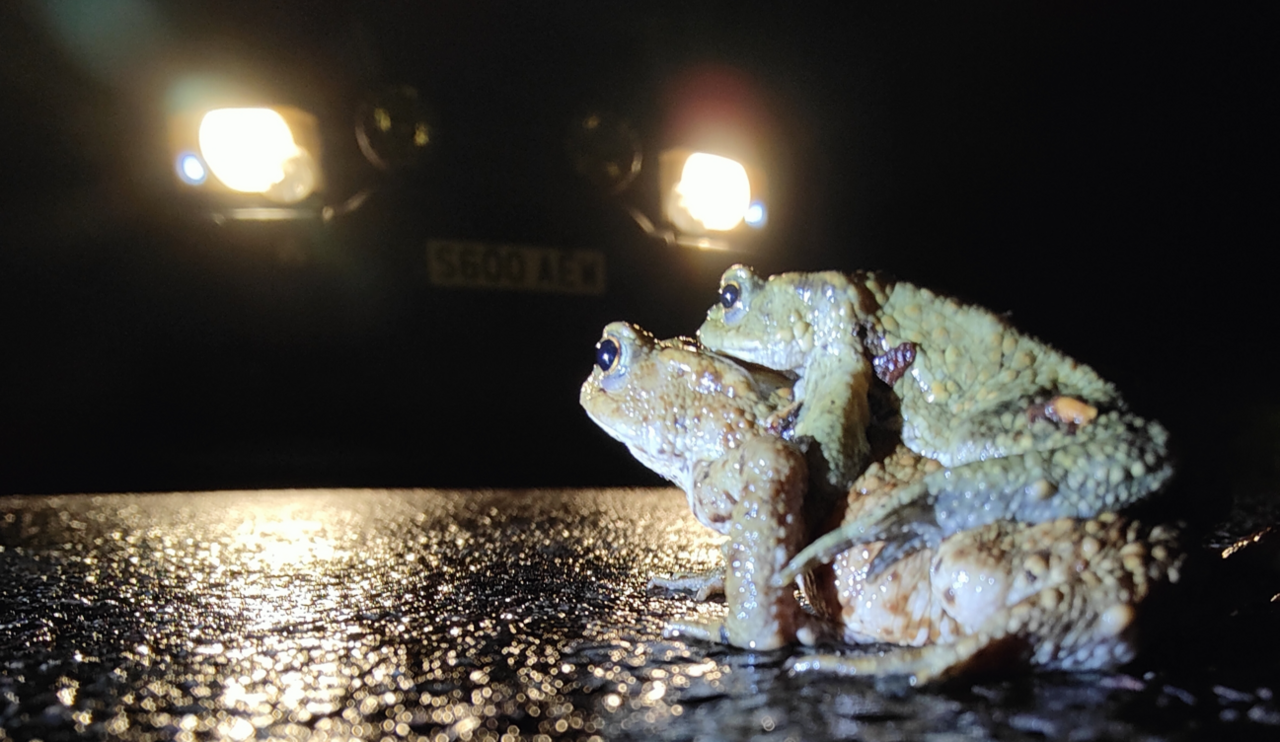
Common Toads migrate along the same routes each year, with males piggybacking on females
- Published
Conservationists have welcomed a decision for a Wiltshire road to be closed to protect migrating toads.
Wiltshire Council has approved a Traffic Regulation Order (TRO) to close Smallbrook Road, in Warminster, overnight from 1 February to 30 April annually.
Every year, dozens of toads are run over while crossing the road to their breeding ponds, although volunteers try and save as many as possible.
"We're delighted and surprised because it has been a very long time asking. We probably started campaigning about five years ago," said Harriet James, who manages the town's toad patrols.
Adult toads emerge from their overwintering sites in February and start migrating towards their "ancestral" breeding ponds along the same routes each year.
Males wait near the water and piggyback onto females as they make their way.
During the migratory season, volunteers patrol roads where the toads cross over, collecting them in buckets and taking them to safety.
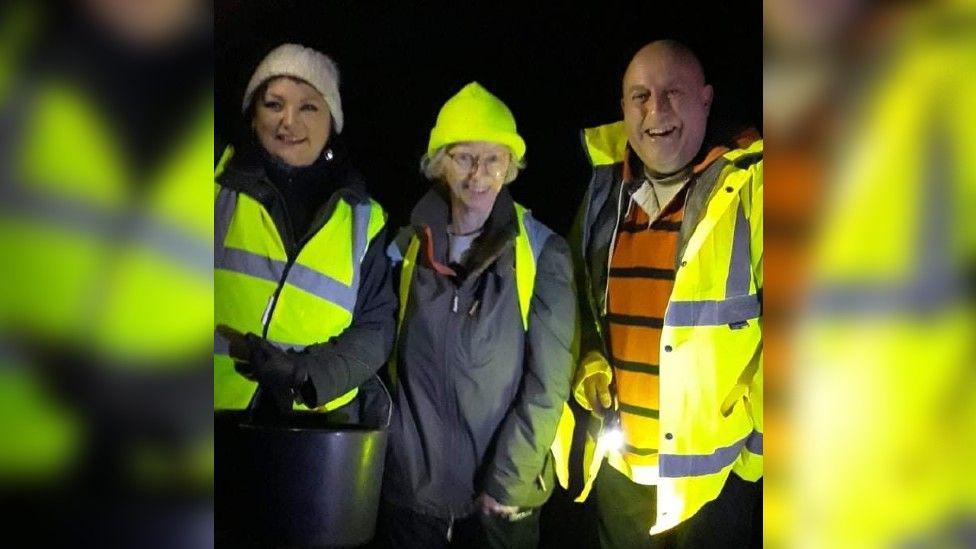
Harriet James (centre) and Iain Perkins (right) join toad patrols on Smallbrook Road during the migratory season
Ms James, who also represents the conservation group Sustainable Warminster, said there had been a decline in the toad population, especially among females.
The latest figures show that last year the toad patrollers in Warminster recorded a total of 1360 amphibians, of which 494, or 36%, had died, compared to 290, or 19%, the previous year.
"Every year we have slightly different numbers of volunteers. It depends on what time we go out and sometimes the movement of toads grinds to a halt if it suddenly gets cold, or there's a fog," said Ms James.
"So it's hard to compare, but we can see a general decline year on year since we started the patrols in earnest in 2019.
"If we can rescue enough females then we can maintain the population because each female can have at least 1,000 eggs inside her," she added.
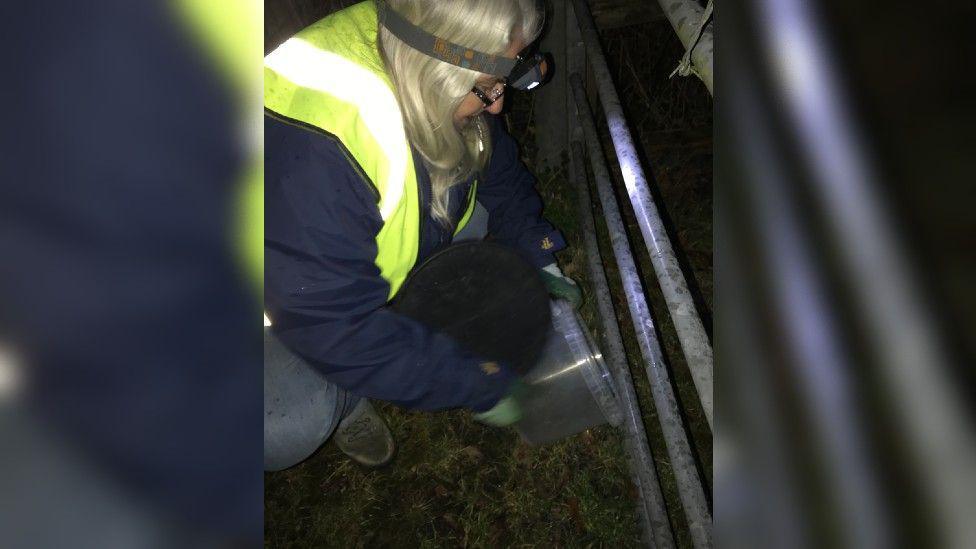
Volunteers collect the toads in buckets and move them to safety
According to the Wiltshire and Swindon Biological Records Centre (WSBRC), the Common Toad is "important to preserve because it is classed as an 'umbrella species', which means their conservation helps protect other species within the ecosystem".
Iain Perkins is an ecologist who lives locally and is part of Sustainable Warminster.
"A good time to look for toads is around Valentine's Day, but it depends very much on the weather; they like it nice and wet and stormy.
"The Common Toad, which unfortunately isn't so common these days, is recognised as a species of conservation concern as its figures are on a downward slope.
"Government and local authorities have a duty to try and conserve them when they can," added Mr Perkins.
Following the decision, the council said: "The [traffic] order will also enable the Smallbrook Toad Crossing Patrol to operate in a safer manner, by reducing the amount of traffic during the toad migratory period."
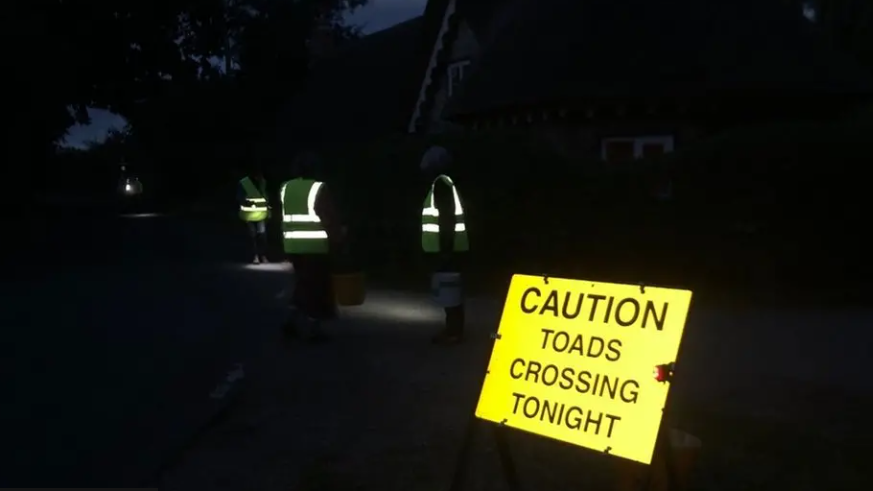
Toad patrollers operate through the night to save the amphibians from being run over
The TRO will come into effect annually from 1 February to 30 April, 17:00 to 05:00 GMT.
The road will be closed from Smallbrook Lane car park to the junction with Upper Marsh Road and Henfords Marsh, except for access,.
Get in touch
Tell us which stories we should cover in Wiltshire
Follow BBC Wiltshire on Facebook, external, X, external and Instagram, external. Send your story ideas to us on email or via WhatsApp on 0800 313 4630.
Related topics
- Published23 January 2024
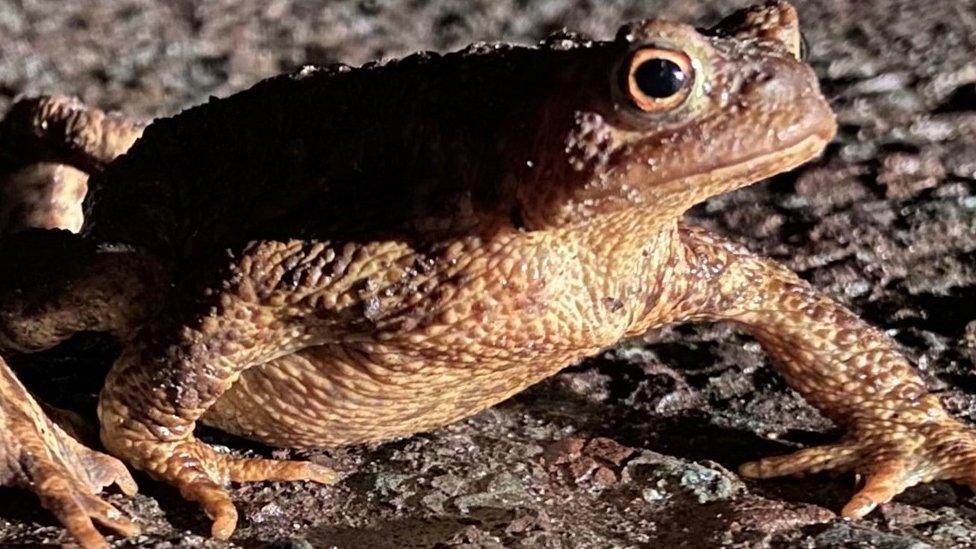
- Published15 December 2023

- Published26 April 2011